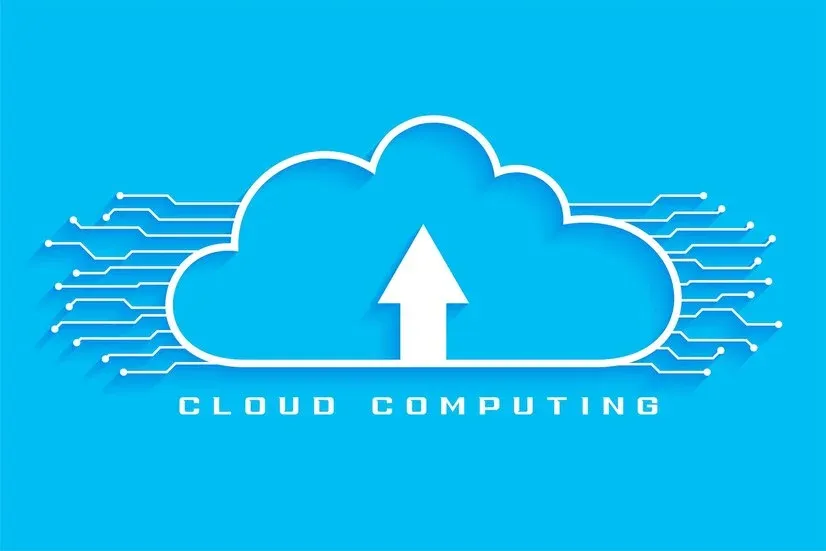Characteristics of Cloud Computing
Updated: 1 July 2025, 11:27 am IST
With the entire technological industry relying heavily on huge sets of data, Cloud Computing has emerged as a helpful solution to enable the secure storage and transfer of data. It helps organizations across the globe store and transfer large sets of data from their physical storage space to a cloud destination, ie., a place that can be accessed by anyone from any part of the world. This blog looks at the key characteristics of cloud computing, its benefits, and its types. Read on.
Get Complete Details From Expert
Request a call →What is Cloud Computing?

Cloud computing refers to an advanced technological means that has enabled businesses across the globe to meet all of their essential IT requirements on an everyday basis. All companies need effective facilities to store data. Cloud computing helps these companies surpass the challenge of storage constraints via hardware devices and systems. Additionally, it enables computer users the world over to be able to access a large pool of resources or data online anywhere, anytime.
Apply Now for BCA in Cloud Security
Key Characteristics of Cloud Computing

Let us now understand a little more about cloud computing technology by taking a look at its top characteristics:
- Enables pooling of resources: Resource pooling can be particularly helpful to cloud service providers, allowing them to offer a plan to multiple clients for storing data and bandwidth, and services for data processing. The providers can easily provide different services to more than one client as per their specific requirements through the resource pooling facility.
- Cost-effective: Cloud computing lowers costs involved in data storage and other IT expenditures. Additionally, many cloud computing services are available for free as well. Even the paid plans only extend storage capacity and therefore involve minimal costs.
- Reduced manual effort: Cloud services efficiently reduce manual effort by automatically installing, configuring, and rebooting systems for optimum functionality. It is also user-friendly, requiring no human involvement in sorting the stored data.
- Easy to maintain: Cloud servers generally demand low maintenance with nearly zero downtime. Online resources that run on cloud computing go through several frequent updates to optimize their potential and capabilities. These updates are also more compatible with the devices and demonstrate quicker performance compared to their previous versions.
- Quick scalability: Cloud storage can manage all data and workload regarding storage with great ease. Since it is fully automated, cloud computing is particularly helpful to business organizations, enabling them to save costs on technical staffing and manual labor. Its rapid scalability and elasticity make it quite likable by companies.
Call Us For Any Query:- 1800 102 3434
Types of Cloud Computing Services

There are 3 types of cloud computing services, which are explained as follows:
- Platform as a Service (PaaS): It is used to manage all infrastructure like networks, databases, servers, and storage. PaaS provides an ideal environment for designing, testing, managing, and delivering software applications.
- Infrastructure as a Service (IaaS): One of the most commonly used types of cloud computing services, IaaS contains the cloud’s basic building blocks that enable access to networking features like operating systems, data storage drives, virtual servers, and networks at a pay-as-you-go basis.
- Software as a Service (SaaS): It offers assistance in hosting and managing software applications and is responsible for maintenance activities like security patching and software upgrades.
Benefits of Cloud Computing

Cloud computing offers a wide array of benefits to several organizations, some of which are shared below:
- Enhanced security: Cloud computing offers advanced security features to organizations, such as centralized data security, which assures complete safety of stored data.
- Ease of collaboration: Cloud applications facilitate secure sharing, access, and communication of information between businesses, thereby making collaborations faster and easier.
- Rapid deployment of applications: Cloud computing enables developers to deploy new instances or even retire them in a jiffy. This facilitates rapid software development.
- Flexible access: Users can access corporate data from any device, anytime, anywhere via the Internet.
- Faster disaster recovery: In the event of an unfortunate disaster, organizations are better able to restore functionality and access to IT infrastructure much more quickly with cloud computing.
Take the next step in your career ?
EnrolL Now →Summing Up
The emergence and popularity of cloud computing have provided an ideal solution to the data storage and transfer needs of all businesses. Besides resolving the limited data-storage constraint of hardware systems, cloud computing has been able to provide an answer for yet another business woe - data sensitivity. Choosing cloud platforms over conventional data storage and transfer platforms, this problem is resolved too, as data can now be transferred securely across environments and accessed remotely from any part of the world using Internet connectivity. Cloud computing has indeed made lives simpler and easier for individuals and organizations alike and has been able to revolutionize the way businesses scale, access, store, and share data.
Check Out Our Top Online Degree Programs
Explore similar programmes
frequently asked questions
What are the key characteristics of cloud computing?
+Some of the primary characteristics of cloud computing services include: Broader access to a network Self-service on demand Pooling of resources Easy maintenance Automation of updates
How does cloud computing provide on-demand self-service?
+Users can access and use cloud computing services as soon as they sign up, without the need for human interaction.
Why is broad network access important in cloud computing?
+It enables users to access cloud resources from any device and any location in any part of the world.
What is resource pooling in cloud computing?
+It enables more than one client to access the same resources from a single pool. Resources can include software tools and data storage spaces.
What are the benefits of cloud computing for businesses in India?
+Flexibility, cost-effectiveness, and security are the three most important benefits of cloud computing services provided to organizations in the country.
Are there any challenges with adopting cloud computing in India?
+Vendor lock-in, unauthorized access, or compliance issues can sometimes pose a concern to certain businesses using cloud computing.
How is cloud computing regulated in India?
+With effect from Oct 2023, India is exempt from a license to provide cloud computing services to individuals and organizations in the country. However, cloud service providers are still subject to the existing IT privacy regulations as well as certain Indian laws to comply with data privacy and other regulations.

